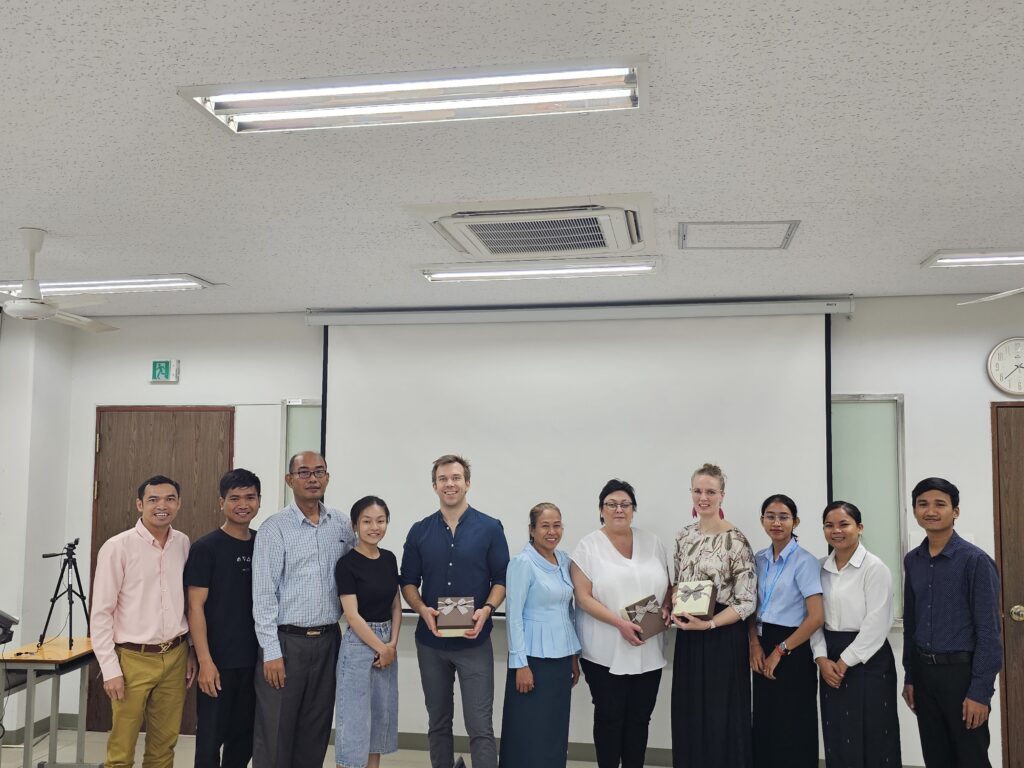From January 9th – 12th, 2024, an international conference of the MentalHigh Project took place at the Royal University of Phnom Penh (RUPP), on the process of focus group interview to implement “Survey of understandings of and needs for mental health of managers, lecturers, and students of Vietnamese and Cambodian universities”.
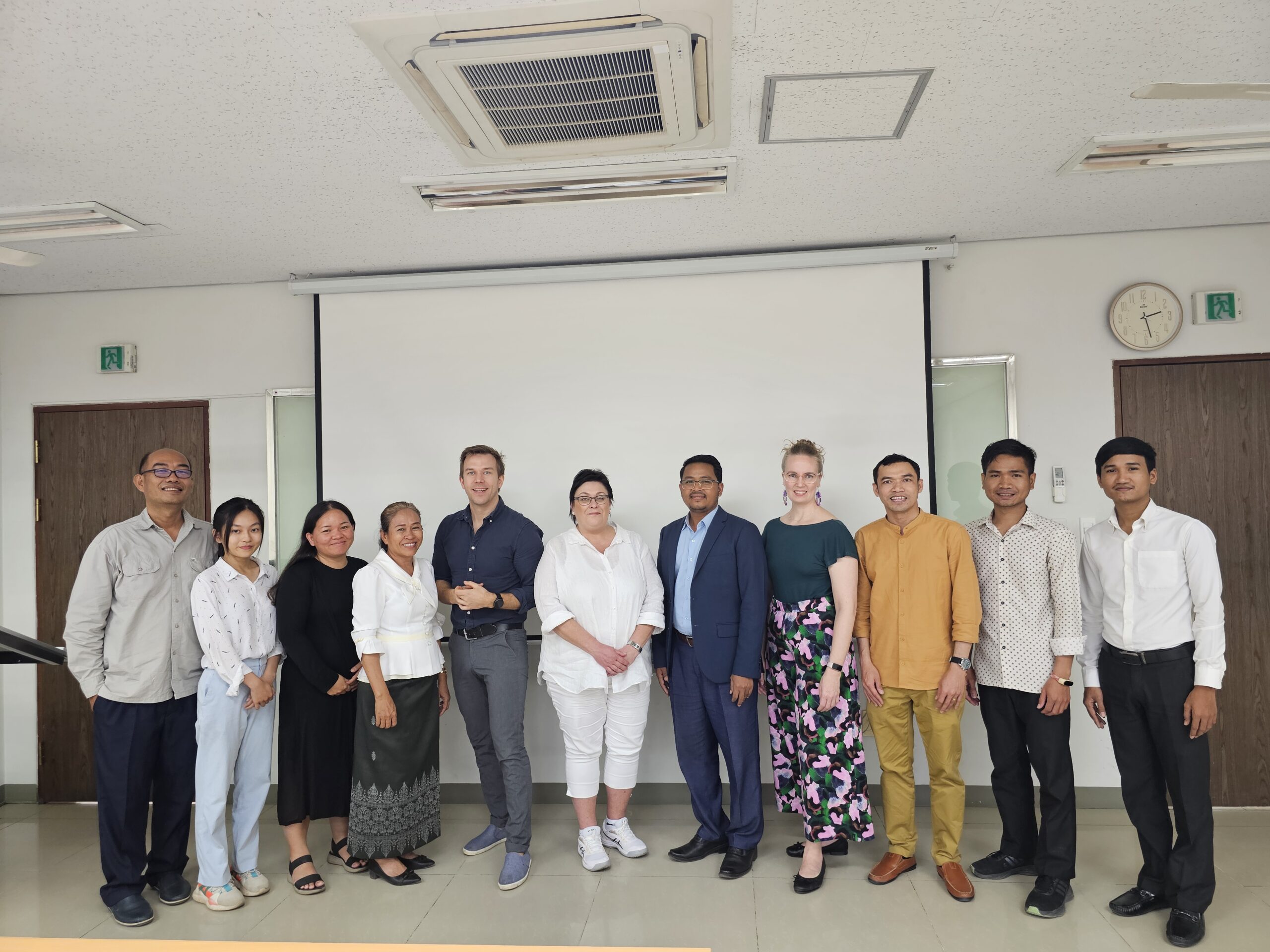
Members attending the Conference at Royal University of Phnom Penh (RUPP), Cambodia
Attending the conference were representatives of 10 project members, including Hamburg University of Applied Sciences (Germany), Turku University of Applied Sciences (Finland), Universitat Jaume I (Spain), Royal University of Phnom Penh (Cambodia), National Institute of Education (Cambodia), University of Education – Vietnam National University in Hanoi, University of Social Sciences and Humanities – Vietnam National University in Ho Chi Minh City, Thai Nguyen University of Agriculture and Forestry, (Vietnam), Thai Nguyen University of Economics and Business Administration (Vietnam), and Vinh University of Technology Education (Vietnam). In addition, there were students from Royal University of Phnom Penh (Cambodia) attending the conference. Particularly, project members participating on-site include representatives from Turku University of Applied Sciences (Finland) and Royal University of Phnom Penh (Cambodia). The event was held in a combined form of both on-site and online, allowing members who could not attend in person to exchange and discuss related issues.
Opening the conference, the Vice rector of Royal University of Phnom Penh (Cambodia) – Assis.Prof.Dr. Kean Tak, delivered a welcome speech and emphasized the importance of implementing the MentalHigh project. The project contributes to equipping students at universities in Southeast Asia with the necessary tools to manage stress, build mental resilience, and maintain a healthy balance between learning and daily life as well as addressing mental health challenges.

Assis.Prof.Dr. Kean Tak – Vice rector of Royal University of Phnom Penh, Cambodia (RUUP) delivered an opening speech.
After that, the members presented a brief assessment of the activities that have been implemented, reviewed documents related to the focus group interview process, and agreed on the time to collect and process data, and discussed the related issues.
Dr. Mari Lahti from Turku University of Applied Sciences (Finland) presented specifically the method of conducting focus group interviews, emphasizing that the purpose of focus group discussions is to learn interviewee’s level of awareness, opinions and attitudes about mental health issues at university, seeking explanations for behavior through interactive discussions. Accordingly, interactions within groups often lead to the formation of attitudes and perceptions. This is especially useful when researching sensitive topics, such as acute mental distress.
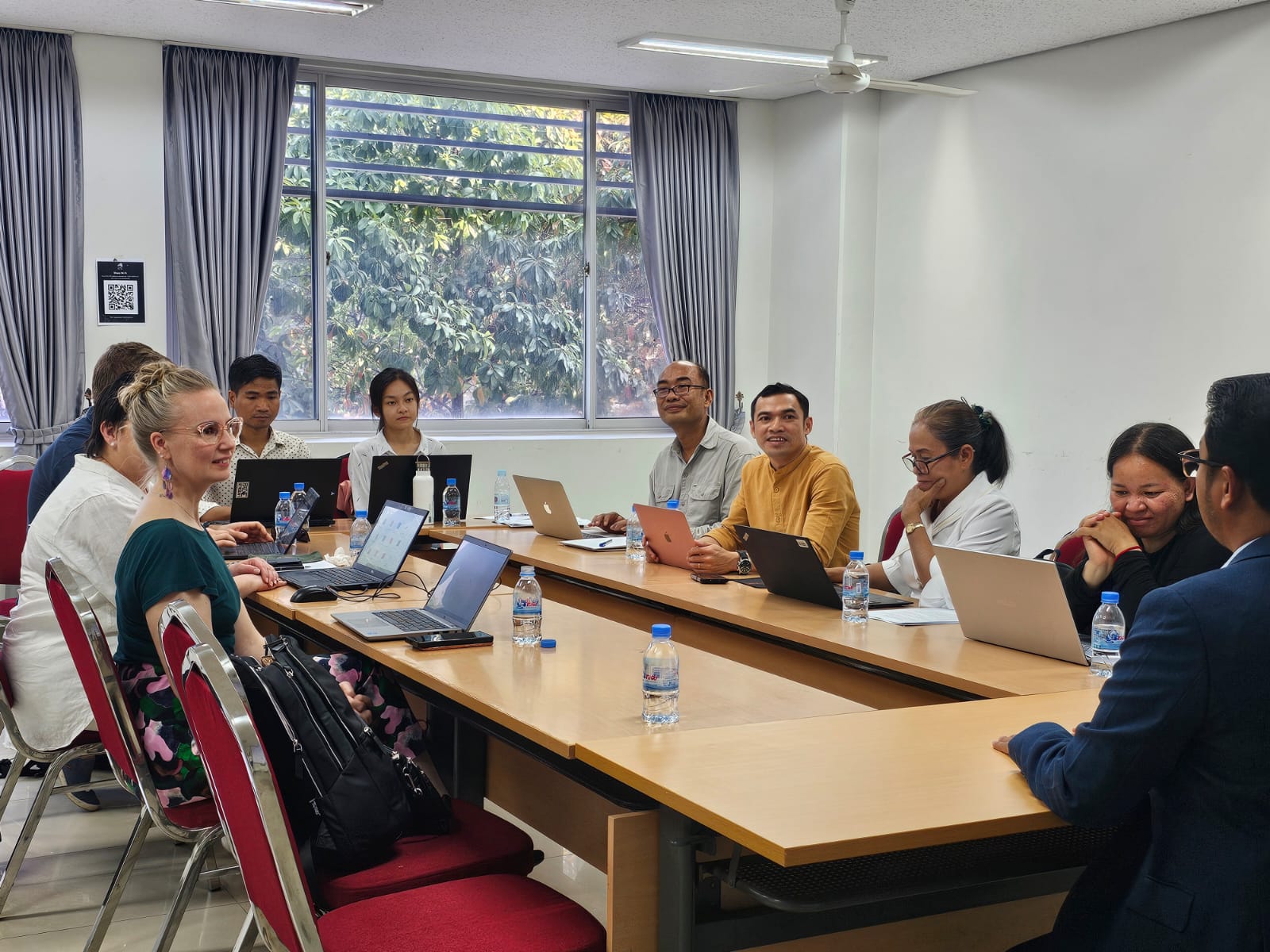
Dr. Mari Lahti – Turku University of Applied Sciences, Finland (TUAS).
Next, Dr. Joonas Korhonen from Turku University of Applied Sciences (Finland) also presented instructions for implementing focus group interviews at each member university. The guide in focus group discussions aims to help the chairperson create a relaxing atmosphere so that interviewees can comfortably express their opinions in the group discussion. It tends to increase the comprehensiveness and efficiency of the collected data.
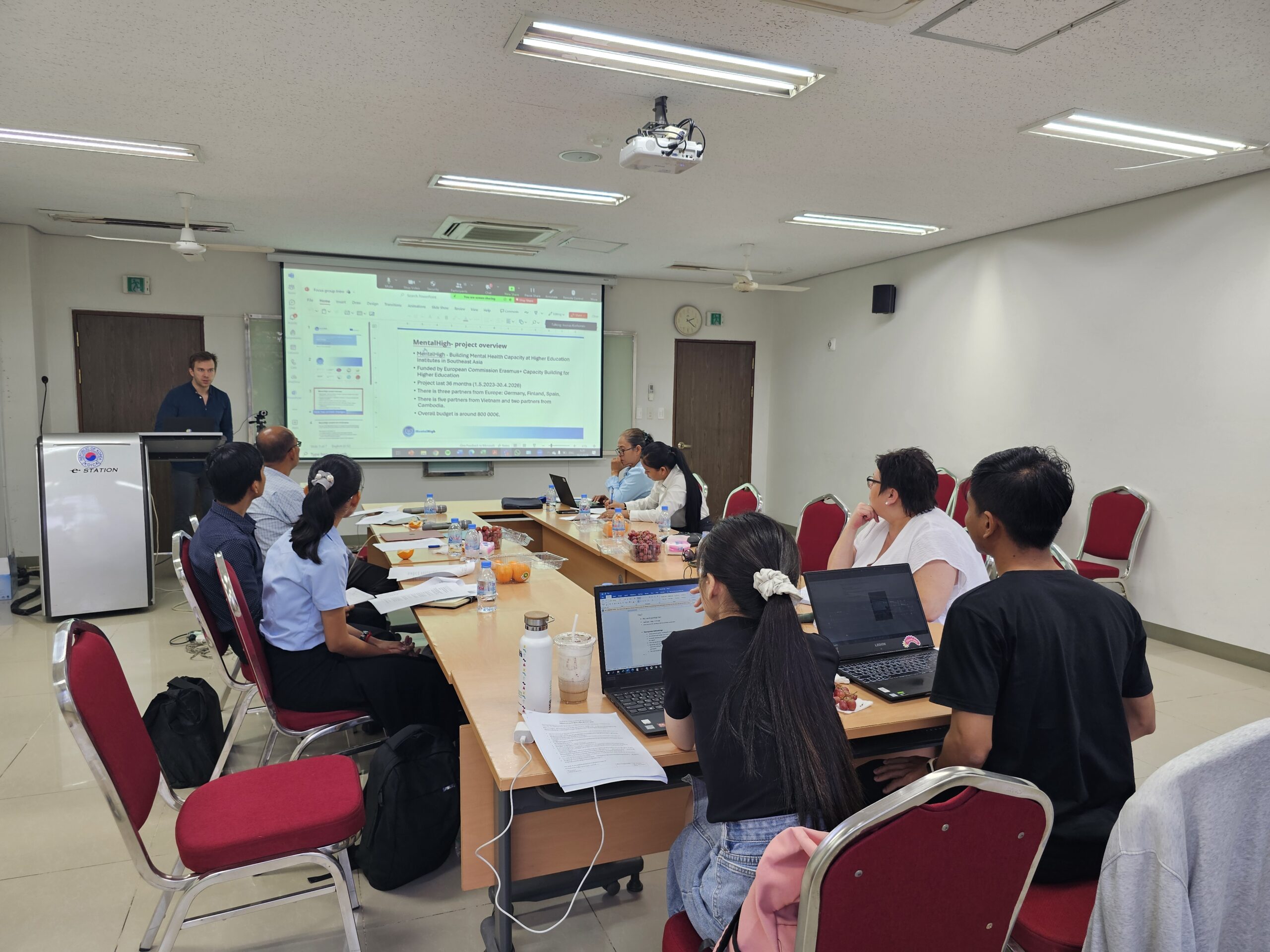
Dr. Joonas Korhonen – Turku University of Applied Sciences, Finland (TUAS).
Interview candidates can be selected from universities, student associations, and local non-governmental organizations. Convenience sampling is primarily used to find participants with experience in the research topic. Initial contacts were then asked to suggest other people who would make interesting contributions to the discussion. Members of a focus group may be homogeneous in some respects and heterogeneous in others. The recommended size for a focus group is 5-10 participants. In which, one person is the interviewer and the other is the note taker/moderator.
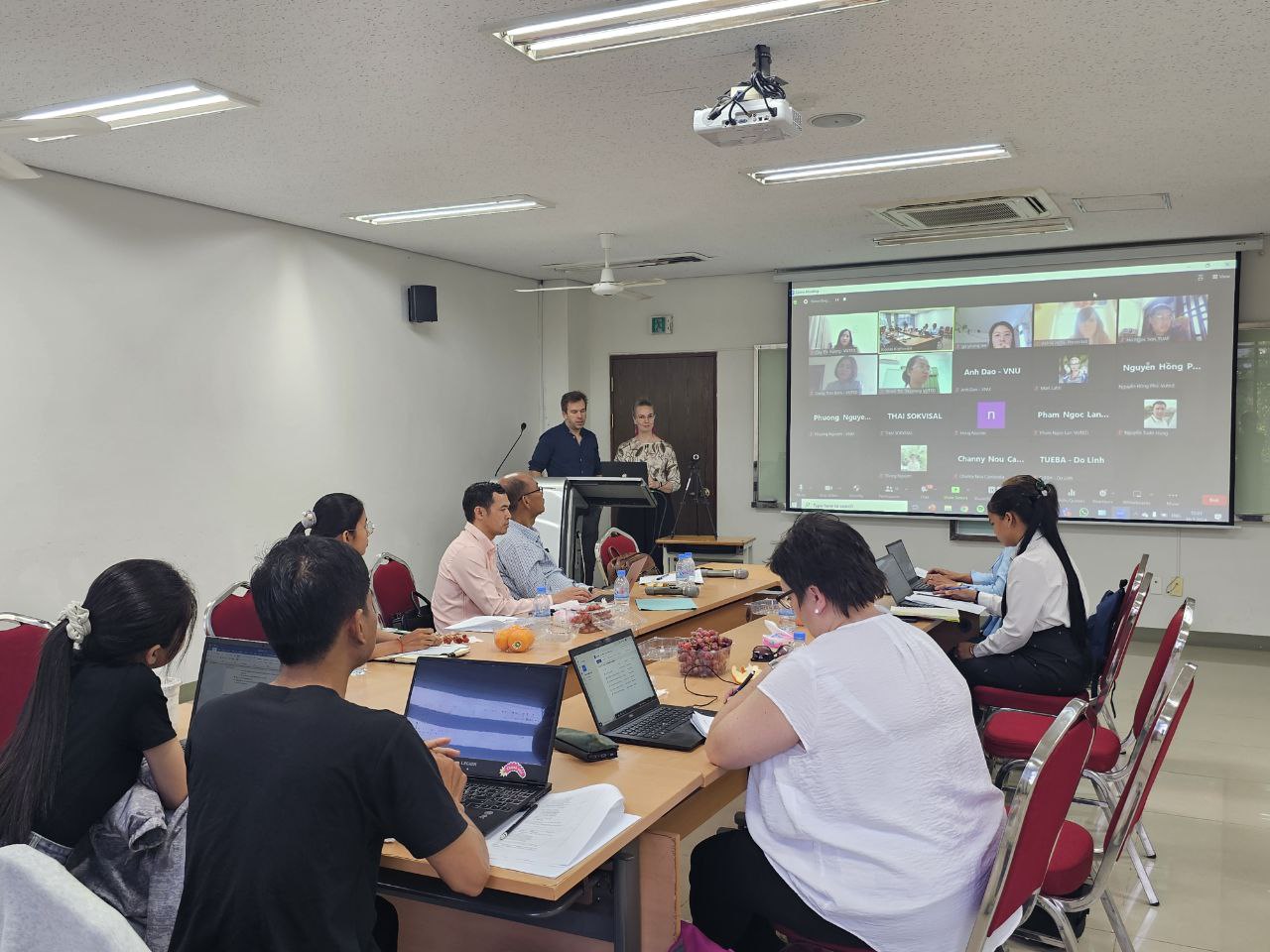
Discussion of focus group interview and survey activities
During the 4-day conference, project members enthusiastically discussed ways to effectively survey the understanding of and needs for mental health of managers, lecturers, and students of Vietnamese and Cambodian universities. To complete the process, the project team will continue to review the survey questionnaire and review how to analyze collected data. Turku University of Applied Sciences (Finland) plays as the leader in supporting member schools in the process of conducting the survey.
The conference ended successfully, leaving a good impression of the warm hospitality of the Royal University of Phnom Penh (RUPP) in particular and Cambodian members in general.
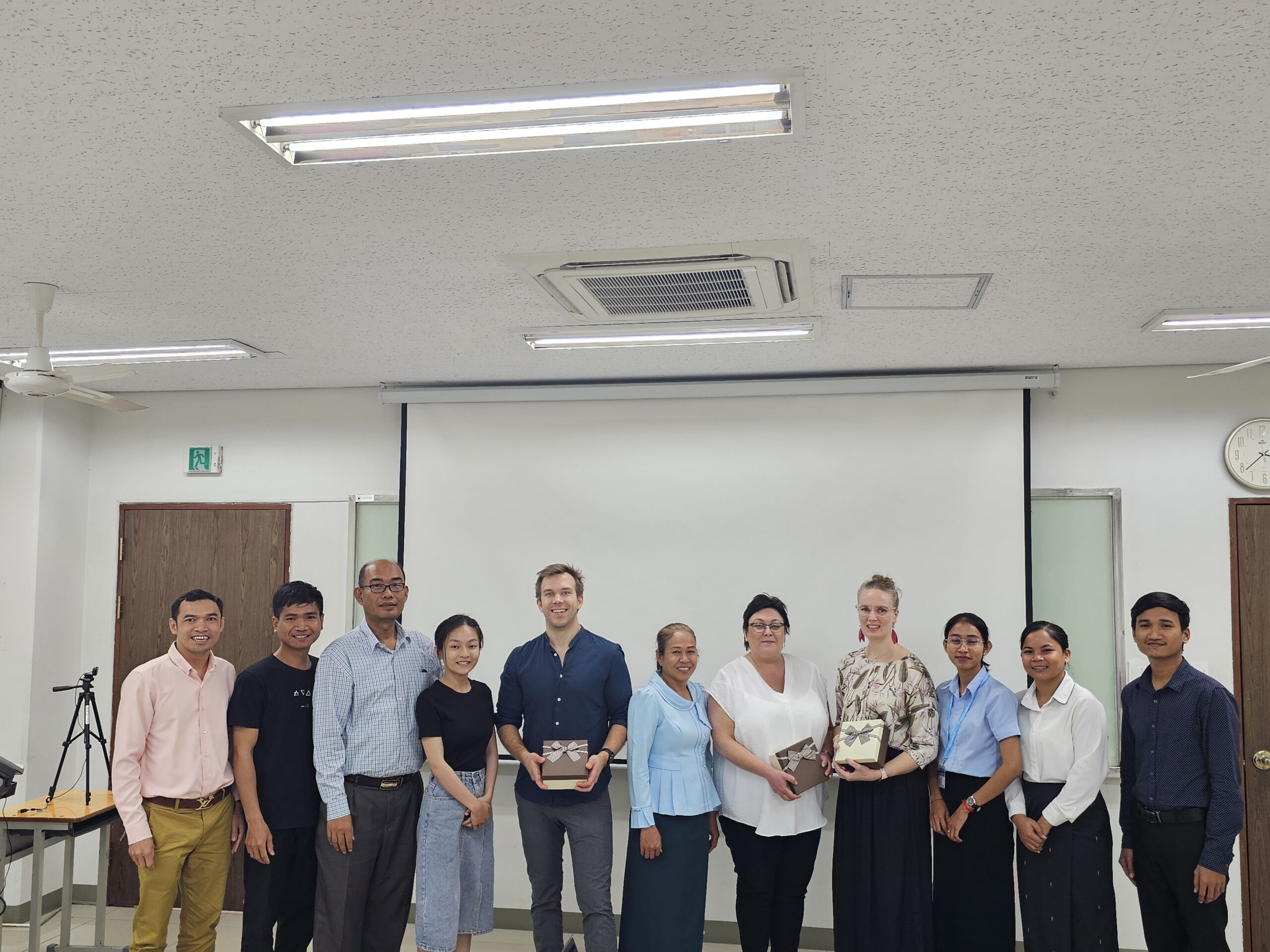
Giving souvenirs
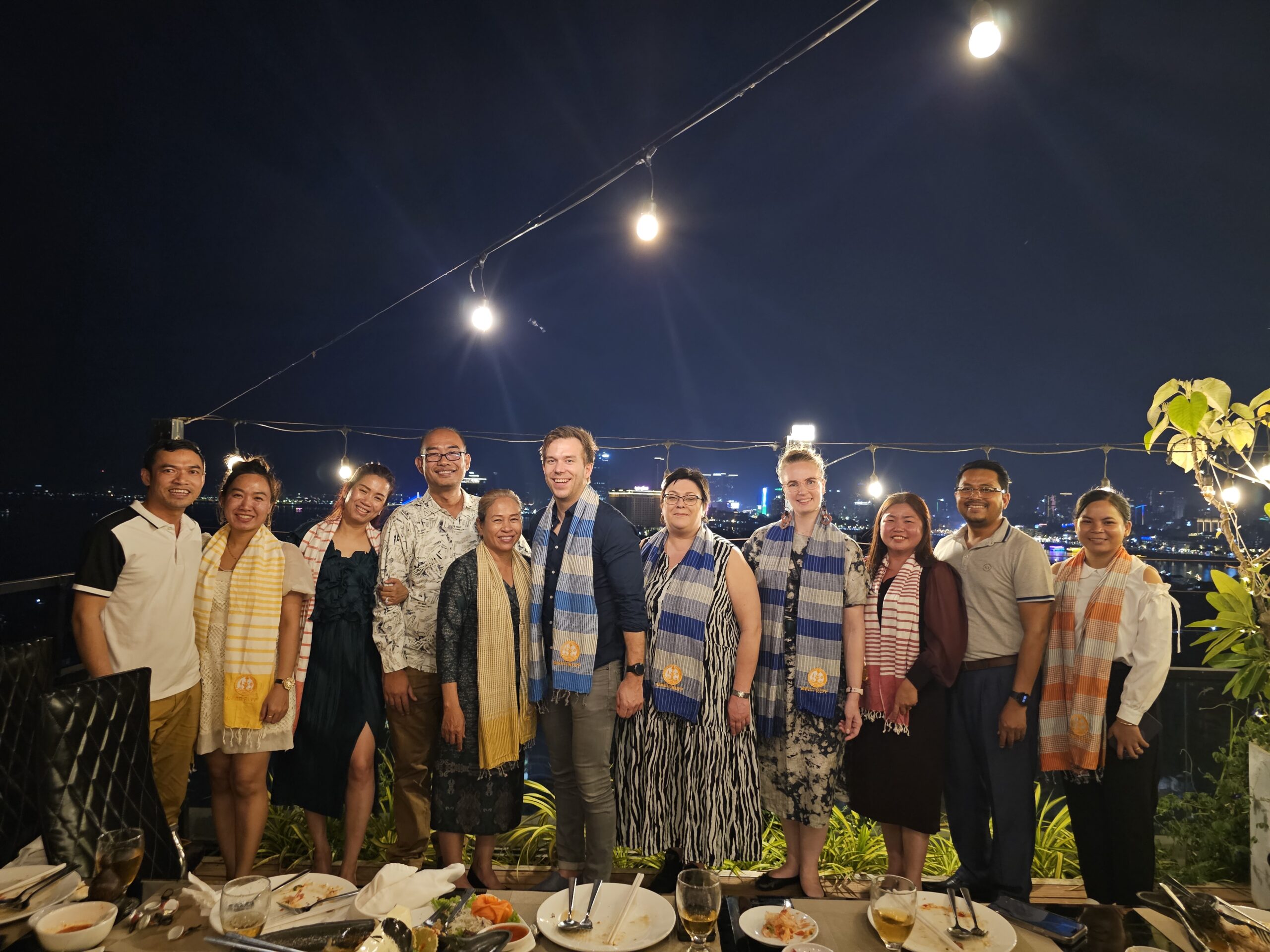
joint activities

